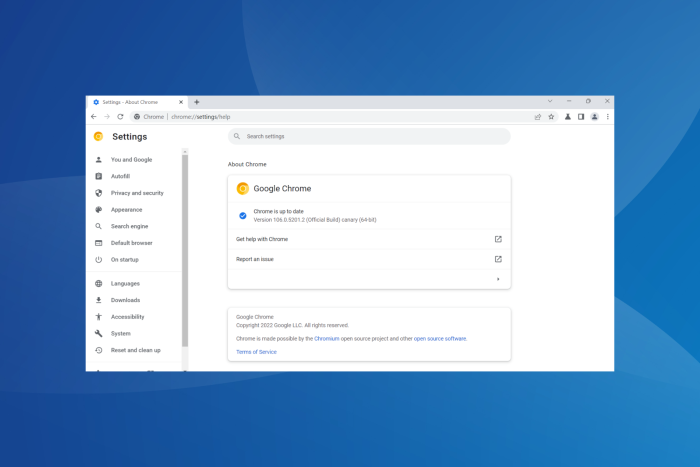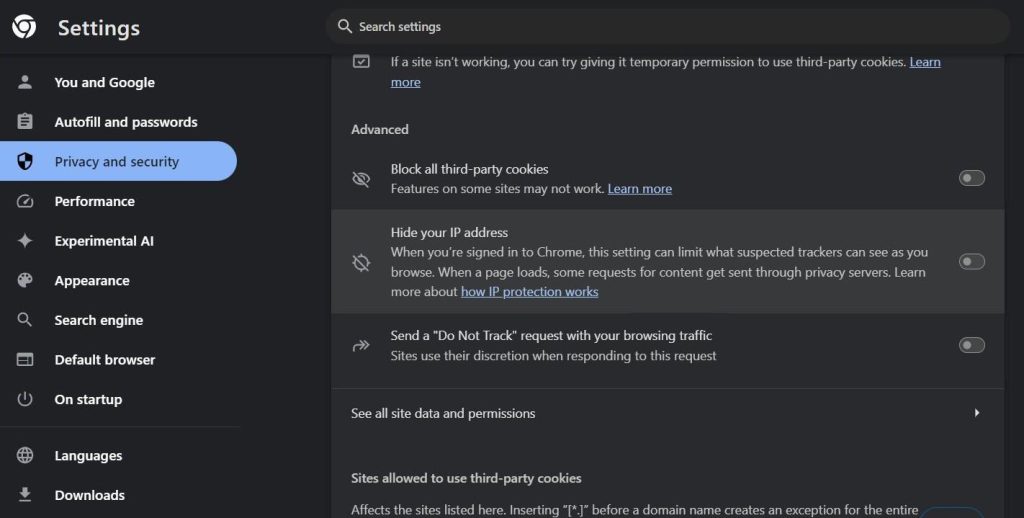Chrome releases IP protection to mask your identity, experts raise concern
It's like a double-edged sword for users
3 min. read
Published on
Read our disclosure page to find out how can you help Windows Report sustain the editorial team Read more

Google Chrome’s latest IP protection feature, Hide your IP address, is making a lot of noise, both for the right and wrong reasons. Cyber experts have raised concerns ever since Google announced the feature.
While reports of it first emerged in late 2023, the feature has finally made it to Chrome Canary, the experimental version of Chrome.
What is the new Hide your IP address feature in Chrome?
The feature intends to mask your IP address from trackers and websites, thus preventing them from forming a profile of you for targeted advertising and more. To do that, Google will re-route certain requests through two proxies, one of Google and another of a third party.
To enable Hide your IP address, launch Chrome Canary, click on the ellipsis near the top right > select Settings > go to Privacy and security from the navigation pane > enable the toggle for Hide your IP address.
With concerns surrounding privacy on the web growing by the day, this is being dubbed as a much-needed feature.
At the moment, it’s still in the experimental stages and only re-routes traffic for a few suspected websites that have been previously found to be using trackers to either profile users or for other ulterior motives.
Based on reports, IP protection will initially be optional but will soon be the default setting on Chrome. Besides, there’s no official confirmation as to when the feature will make its way to the stable Chrome version.
Why are experts concerned about it?
Experts are suspicious because, when the traffic is re-routed via Google’s servers, it will give the tech giant a first-hand advantage in data collection and sharing it with third parties. According to recent reports, Google generates 75-80% of its revenue from advertising.
So, now, with Google in complete and exclusive control of your searches and preferences, it will create sort of a monopoly, and subsequently, the California-based tech giant will emerge as the advertising leader in the market.
To get an idea of Chrome’s reach, it controls 64.38%, roughly two-thirds, of the browser market share, followed by Safari and Edge, as per Statcounter.
Also, in November 2023, a complaint was registered with the UK’s Competition and Markets Authority (CMA) by the Movement for an Open Web (MOW) group, claiming that IP protection puts rival advertising businesses at a disadvantage.
We came across a GitHub thread where many expressed similar apprehensions that the feature would solely benefit Google and not the end user.
What do you think of the new IP protection feature in Chrome? Share with our readers in the comments section.









